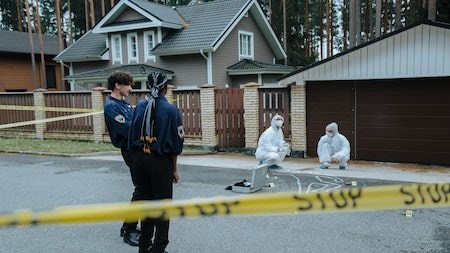In 2018, accidental injury and assault were the leading causes of death due to external causes of morbidity and mortality, according to a report released last year by Stats SA. While it is sometimes beyond one’s control to avoid accidental injury or assault, there are ways to become better prepared to handle these instances if and when they occur.
Many of these incidents can happen either inside or near one’s home. To minimse the extent of damage, Regional Director and CEO of RE/MAX of Southern Africa, Adrian Goslett, explains that it is best to ensure that the home is properly prepared with first aid supplies and emergency contact numbers so that assistance can be called for as soon as the incident occurs.
“Often, when these accidents occur, victims struggle to think clearly which can make it difficult to acquire the necessary assistance. Whether it be a fire outbreak, an assault that occurred from a burglary, or just a regular household accident like a burn wound from the stove, being properly prepared can help prevent any lasting medical implications,” Goslett advises.
To minimise the harm that can occur from these unexpected events, RE/MAX of Southern Africa shares a few tips on how to implement home safety measures in any household.
Maintain your home security system
To prevent the occurrence of injury resulting from an assault in the home, do not take it for granted that your security system is always working. Test if from time to time to make sure that there are no obstacles (this includes dust) obscuring the sensors and that everything is in working order. Keep in mind that most security systems need to be serviced annually and the batteries on some sensors may need to be replaced at regular intervals. Also check that any burglar bars are still tightly fastened and not easily removed or rusting.
Print a list of emergency contacts
Do you know the contact details of your local emergency services? If not, then it might be beneficial to keep a list of these contact numbers, including the local fire brigade, police department, your local doctor, as well as the nearest hospital. Store these numbers on your mobile device or keep a copy of these details in an easily accessible part of the home.
Stock up on first-aid supplies
When last have you checked your stock of first aid supplies? You should check this regularly to replenish supplies and replace expired medicines. You also need to check your household’s fire extinguisher monthly to ensure that it is in a fully operational state. Look out for any noticeable damage to the extinguisher, leakage, changes in the pressure gauge and corrosion.
Make sure you also have everything you need in case of an emergency. If you’re not sure where to start, you could replicate what is set out by the Department of Labour for a regulation first aid kit, which includes items such as:
- Wound cleaner / antiseptic
- Swabs for cleaning wounds
- Cotton wool for padding
- Sterile gauze
- 1 pair of forceps (for splinters)
- 1 pair of scissors
- 1 set of safety pins
- Triangular & roller bandages
- Adhesive dressing strips & first aid dressings
- 2 Straight splints
- Disposable latex gloves
- CPR mouth pieces or similar devices
Create an evacuation plan
In the event of a fire or even a break in, it is imperative that everyone in the home knows where to meet and how to exit the home safely. Discuss possible exit routes and meeting points depending on where the fire is most likely to start or where it is most likely for an intruder to enter. You could formalise the plan by drawing the floor plan of the home and outlines routes, or this could simply be a discussion among everyone in the household.
As a final recommendation, Goslett encourages homeowners not to overlook the importance of implementing some form of home safety measures. “The trouble is that home safety does not seem like a priority until it is one – and then, it is often too late to do anything about it. Having a strategic plan for home emergencies may not be on top of the to-do list, but I would encourage all homeowners to carve out some time to think about this. It is always better to be well prepared if and when disaster strikes,” Goslett concludes.





